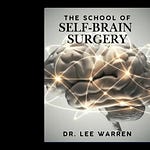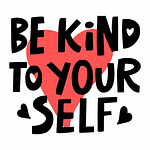In a Hectic Life, Systems Keep You Sane
In a world full of chaos, systems keep you sane.
My weekly newsletter is on Substack (download here for Apple, coming soon for Android/Google). It will still come to your inbox via email, so if you don't want to use the app, you'll still be good!Substack combines all the things I'm doing online into one place, gives me the opportunity to bring additional content to paid subscribers, and will make my online life a lot more efficient.You can sign up for my Substack letter here. (Note: There are options to sign up for free, or to become a paid subscriber in this link. The normal newsletter will always be free!) (Music shared on The Dr. Lee Warren Podcast is authorized under BMI license #61063253 and ASCAP license #400010513 ) Go to my website www.wleewarrenmd.com for more information about my letter, this show, my books, and more.
John to Know, James to Grow bible study
Transcript:
Hey friend, have you ever lost your keys?
It's an irritating way to start the day. You can't find your car keys. You already lost your spare set, so you have to search your house, you finally find them in the pants you wore yesterday, and by the time you get to work, you're ten minutes late.
And that morning, you had a big meeting. Since you were late, the boss gave a sale to your rival, who you were trying to beat for associate of the quarter, and you really needed that bonus.
You get to your desk, and spend an hour looking for the folder you need for your conference call, and finally remember that you left it in the copy room yesterday.
When you get there, it's buried under a stack of other stuff and it takes you ten minutes to find it. You're now five minutes late to the conference call, and as a result the manager tells you she's going a different direction on the project.
Your whole day is shot, because of lost keys and misplaced folders.
Does this sound familiar?
If so, this episode is for you.
I've got a question for you:
What's your system?
What's your strategy for getting things done in the most efficient way, always having the things you need to do your work and live your life?
I'm going to tell you twelve reasons why you need to be more organized, and then I'm going to share six secrets to developing life-proof systems to help you avoid days like the one we just talked about.
Disorganization and chaos can make our lives much more stressful than they already are. And who wants that?
I'm here to tell you, friend: in my world I cannot survive without a solid organizational plan.
Why?
Because systems keep you sane.
I need to confess that as intelligent as I am, as accomplished as I am, at my baseline my mind is a disorganized mess. I struggle with being easily distracted, and I learned a long time ago that if I was going to be successful, I had to get organized.
Now I'm not alone in this. In fact, a huge percentage of type-A, hyper-performing people have what today is called "Adult ADD." When I was a kid, the teachers called us 'hyperactive,' but fortunately I had parents and teachers who were wise enough to let me be myself. They never let me feel like something was wrong with me because I paced a lot, tapped my pencil when I had to sit still for a long time, or seemed to be distracted when they were trying to teach me. Instead of assuming I wasn't listening, they learned to say, "Did you hear me?"
And I had, every time. I just didn't need to look at them to hear. The big surprise for me was when I got to medical school and found myself in a school full of people just like me.
Parents, be patient with your kids, learn how they learn, and try to maximize their opportunities before you let someone label or medicate them when they're not acting exactly like everyone else. Sure, some people need help and have real problems with learning and behavior.
But a lot of folks just need to develop a system to manage their minds, their lives and their behaviors.
If you struggle with keeping your mind on track long enough to get off to work without forgetting your cell phone, then you need a system.
If you have a hard time focusing on one task because a lot of things are vying for your attention, you need a system.
If you feel like you waste a lot of time during the day, and you're not as productive as you need to be, you need a system.
It's really cute when your five-year-old forgets something and shrugs, smiles adorably, and asks for your help.
It's not cute when your classmate has to borrow your calculator, every day. Or when your forty-five-year-old lawyer gets to your deposition and forgot your case files.
Systems keep you sane.
For me it works like this:
I put everything I need to have with me in the same place, every day. My keys, glasses, wallet, watch, anti-Zombie spray, and hand grenades in a certain place, all together, every day when I get home from work. I'm just kidding about the hand grenades. Those are illegal. But seriously, all my stuff is right next to my sock and underwear drawer, and unless I want to leave the house without underwear and socks on, all my important stuff is right in front of me where I'd have to work hard to forget it.
I promise, if I ever get out of sequence in how I dress, or if I leave my wallet somewhere else, I will absolutely get to work without it.
What's amazing to me is how I can literally have no idea I've forgotten my wallet, and then as soon as I realize it my brain can absolutely feel its absence in my pocket. I'll feel my not-wallet in there like a splinter under my skin until I go home and get it.
Why don't I feel the not-wallet sensation until later in the day when I need my wallet? No idea. But it's true.
No system, no wallet. Or keys, etc.
The same thing is true at work. If I don't discipline myself I'm the total absent-minded professor. I'll get to surgery without my MRI scans, with no prescription pad, and my reflex hammer is still in the car. It's true. I have learned of myself over the course of my life that if I do not enforce a strict organizational system I am stunningly capable of Alzheimer's-level forgetfulness.
Listen: if you struggle with disorganization, frequently forgetting things, not having what you need, etc., you need systems.
As Henry Kissinger said, if you don't know where you're going, every road will lead you nowhere. Systems keep you sane.
Here are twelve reasons you need systems:
(These were inspired by a great article on evancarmichael.com)
1. Systems help you be more focused on what you want to achieve. You can stop getting sidetracked by the things you forgot and instead keep knocking out the things you need to do.
2. Systems help you be more productive. You increase your brain power by eliminating a lot of stuff you've always worried about- you'll know where things are, when things need to happen, and you'll have a system in place to keep track of your work and your life.
3. Systems help you manage your time more effectively.
4. Systems help you do your work more economically. No more rushing out on the business trip to replace the cell phone charger you left at home.
5. Systems help you reduce the clutter in your workspace and reduce your stress levels. Systems improve your brain chemistry.
6. Systems help you achieve more balance in your life.
7. Systems help you set and achieve your goals in a more efficient manner.
8. Systems help you present a more positive business image. Scrub techs have amazing systems to prepare for a case. Imagine a scrub that didn't strategically design how they prepared the instruments for your brain surgery. Chaos... when I see a messy scrub tech, I look for a new one.
9. Systems help you prioritize your tasks.
10. Systems help you be more flexible and more creative. Your brain power isn't being sapped by worrying where you left your briefcase, so it's got the juice to think up new things.
11. Systems help you achieve more energy and enthusiasm. Confidence soars when you know you're squared away.
12. Systems help you achieve freedom from chaos.
Doesn't it sound like you need systems in your life?
I hope by now that you're convinced that developing and maintaining organizational systems will help your life.
Now we know the why, and I'm going to give you the how.
Here are my six secrets to developing life-proof systems:
1. Create backups for things you need. I have a 'go bag.' It's a bag full of stuff that will ruin a trip if we forget it. It's got backup power cords for our phones, certain medicines and supplies that will get us through a couple of days if the airline loses our bags or if somehow I forget something. It stays in my carryon bag all the time, and if I ever have to use it, I immediately make a note to myself with a calendar reminder to replace the used item.
This might sound silly, but the first time you have a lost bag or a migraine or an allergy attack in a distant town where you can't get to a pharmacy, you'll thank me. It's a backup, to my tendency to forget some things, and to protect us from someone else losing our luggage.
Of course, this does not only apply to travel. If there's anything that your successful day at work depends on, your safety or happiness is frequently at risk over, etc., build a system with backups to handle it.
I'm not saying that you should keep blank anniversary, birthday and Valentine's Day cards in your sock drawer in case you forget... but could that sort of thing save the day for you once in a while?
It's part of my system to have a backup in place. Don't just have a plan A. Life is too great of an offensive coordinator for you to think that you can run the same play over and over and win. You have to be ready, and backups help a lot.
2. Create failsafes for important data. This sounds similar, but it's different. Failsafes are subsystems I put in place in case of some major problem arising. If I'm giving a talk, what if the computer doesn't have the right kind of port for my memory card? I have a failsafe: all my books, talks, blog posts, everything I write is backed up online via Dropbox.com, and on an external hard drive I can take with me in case my laptop decides to die, and on my computer's hard drive and an SD card. Sounds excessive, until you've given enough talks to know that sometimes you get somewhere and their WiFi isn't working so you can't get to Dropbox, your computer is a Mac and they don't have the right connections for the projector, even though they said they would, and their old Dell laptop doesn't have an SD card slot.
Failsafe: my presentation is also on a USB hard drive, so we're still good. Oh, and POW, they don't have Keynote on their PC, so my presentation isn't compatible! Disaster? No. I also saved in Powerpoint format in case I ran into any dinosaurs, I mean PC people who haven't yet seen the Keynote light...
Failsafes keep you from, well, failing. They're an essential part of the systems that keep me successful at all times. And no just with data. Can you think of areas of your life that would be improved if you implemented backups and failsafes?
3. Use repetition to create synapses, muscle memory, improve brain power by removing conscious thought from frequently needed items/tasks/etc.
4. Never rely on memory. It's unreliable, no matter how smart you are. Make checklists, and develop a discipline and practice of using them. Save your brain for the important stuff, not remembering the toothpaste.
Set phone alarms. If you use Gmail, you already have a free calendar that will send you alerts on your cell phone.
Why keep letting the same issues hold you back? Use systems.
5. Use Evernote. In this day and age, it's silly to keep bumping into the same problems over and over again when there are so many, and often free, powerful tools to help us organize our lives.
I use Evernote everyday. It's the note keeping, digital information organizer that's made a huge difference in my life. Even the free version is super-powerful. Lisa and I use the pro version and it's awesome.
I actually write podcasts and blog posts in Evernote first. It syncs across all my devices, works offline, and saves me tons of frustration. Check it out at Evernote.com.
Michael Hyatt has a vast number of blog posts about how to maximize Evernote to help you. Please do yourself a favor and check them out.
6. Care about it. The most important aspect of successfully implementing systems into your life is to care that you don't forget things. To have it bother you when you're late, when you can't find something, or when you underperform because you had to scramble to manage something a system would have prevented.
Let me tell you a secret: my systems kept me alive and kept our business running when my son died. I have so much of the mechanical parts of my life systematized that in those months after we lost Mitch, I didn't have to think about where my keys were. Muscle memory kept me hanging them in the same spot, reaching for them the next day without having to think about it. I didn't have to wonder where my prescription pad or coffee cup were, or my when my bills were going to be paid, or anything like that, because of having systems in place. In those weeks when all we could do was breathe in and out, having the calendar pop up and remind me to pay the mortgage was a lifesaver.
Systems keep you sane. They can save your life.
We're grownups now, and it's time to stop struggling over things that can be automated and systematized.
Systems keep you sane and they set you free.
And let me just add this: Not having a system IS a system. It's just a terrible one.
Now you might be wondering what all this has to do with starting today?
I'm glad you asked.
1. Past losses can teach us, but they can't define us. Labels are rarely true, and when they are, they can be changed. "That's just the way I am," isn't cute anymore when it costs you your job. We aren't stuck with "I'm just ADD, and it makes me forgetful," or "I'm just a messy person." It if keeps hurting you, change it.
2. Massive change requires massive action. It takes at least three weeks to make a new habit. If you want to make a system that will really stick in your life and make a difference, you have to massively engage with it. It won't set in and become a part of your life if you don't fully embrace it.
3. If you want to feel better, do better. If you're really tired of the consequences of being disorganized, stop wallowing in it. Change it with systems, backups, failsafes, lists, software. Care about it.
4. Peace is achievable in spite of circumstance. No matter what, if you divorce circumstance and marry the idea that you get to decide how you feel, you'll be happier. Decide, purpose in your heart that disorganization and chaos are NO LONGER ACCEPTABLE TO YOU, Embrace the peace systems offer you. Embrace the sanity of systems.
5. The time to start is today. You start today. You can't change yesterday, and you can't control tomorrow. But you can decide that today you will become more organized and therefore more successful in your life.
Someone I love recently said, "Creative types are just messy people. It's how we are." I would submit to you, dear one, that organized, disciplined systems in your life, including housekeeping, cleanliness, orderliness in how your life and your things and your work environment will lead you to having more available brain power to be creative. It will improve your work and your life. Systems keep you sane.
My friend, if you're not using systems, you're leaving a lot of your life on the table.
I hope this conversation has motivated you to look for places in your life where you can be more systematized.
But motivation is useless unless you act on it.
Take massive action.
Systems will help your brain, help your heart, and keep you sane.
Take massive action. Embrace systems in your life. Get Evernote. Make lists, set alarms, automate things. Take massive action.
Stay safe, get smarter, and keep your sanity by embracing the idea that systems keep you sane.
And start today.
If you want to become healthier, feel better, and be happier, you have to start today.
(Updated YST034 from the old You Start Today Podcast)














Share this post